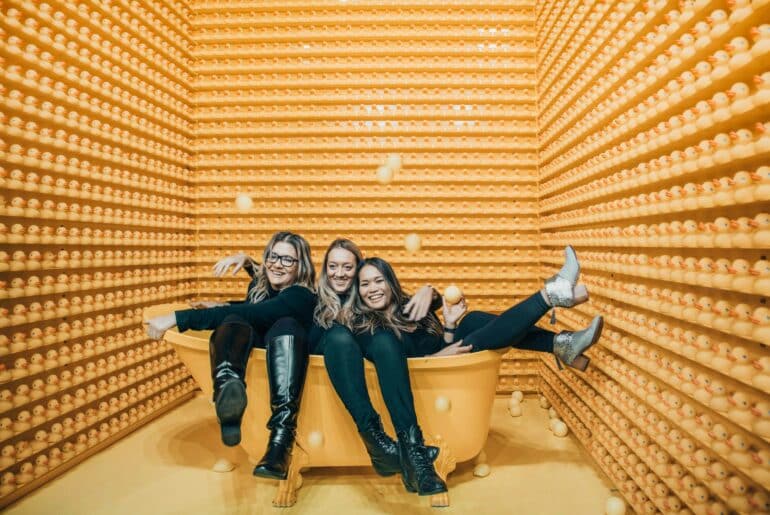Last month, I traveled to Indianapolis with our CEO, Sue Frech, to attend Loyalty360’s 2019 Customer Expo. The show, from the leading customer loyalty association, was an invigorating journey into the state of the industry, with brand marketers sharing their efforts to take consumer satisfaction to the next level. We came away excited about what we heard and what it means for 2020, and wanted to share some of the key trends with you.
We’re even more excited about our new partnership with Loyalty360 beginning later this month. It will offer brand marketers a way to connect with industry peers and gain insights to enhance their customer loyalty efforts. Click here for a sneak preview. And if you want to know more about how our innovative technology cultivates loyalty and engagement check out our Vesta solution here.
All Give, No Take
Customers are wary of sales tactics. We all know it. But we heard from some savvy marketers that are getting past their targets’ defenses by offering free, no strings attached rewards. In return, they are finding consumers are inspired to freely engage with them, resulting in increased consideration, foot traffic, and sales.
- When creating its new customer program, T-Mobile decided to focus on appreciating its customers instead of measuring their loyalty. While other mobile providers offer discounts with limitations, T-Mobile Tuesday’s free weekly rewards come with no obligations. At least once a month, they offer in-store redemptions, such as a free phone case, which has resulted in higher foot traffic and dramatic sales increases.
- When Arizona State University wanted to build alumni engagement and donations they created a platform focused on giving back to their community. Every activity taken in its Sun Devils app, from messaging someone to attending an event, earns points that can be redeemed for rewards, including free use of the ASU facilities, event tickets, branded swag or exclusive experiences with its professors. Their research confirms ASU school spirit is at an all-time high with not just alumni but prospective and current students as well as parents.
Employee Empowerment
Relationships are critical to sales success. And even more so when you have only one chance every 10 years to get it right—a reality for moving companies—or require a large upfront investment. In these situations, your staff’s ability to deliver an exceptional experience is crucial. We were impressed with the way two companies were ensuring success by focusing on their front line employees.
- Leading Hotels of the World customers invest a lot in the association’s loyalty program, and not surprisingly, they expect a lot in return. To ensure each of the independent hotels in its portfolio maintained the program’s high standards, the brand created an Employee Ambassadors program. The program established two employees at each property to serve as loyalty program specialists, helping implement and improve the experience for loyalty program members.
- Wheaton World Wide Moving understood how important it is for brands with long repeat sales cycles, especially in service-based industries, to form an emotional connection to more easily keep customers satisfied and inspire positive word of mouth. So they instituted a customer service training program for their agents and created a customized pre-sales process. These moves have helped strengthen communication between movers and clients, resulting in fewer mistakes and more understanding customers.
Personalization Wins, For Them and You
Personalizing your loyalty program is the ultimate win-win: it makes your consumers feel special and also provides you with richer data. These two companies found creative ways to enhance their customer knowledge and deliver a more individualized experience.
- Sapporo was having trouble collecting personalized data from its loyalty program customers. They realized it was because a single buyer often purchased the entire tab when entertaining, limiting and skewing the data being collected. Sapporo decided to change the way they approached their loyalty program by engaging with customers at the ordering stage instead of the payment stage, allowing each customer to receive points and enabling the brand to collect individualized data.
- When Giant Food Stores found that their current loyalty efforts were no longer seen as competitive differentiators, they faced the question: how do you build new, interesting loyalty features when you can’t get rid of old ones? Their new loyalty app collects user data to ensure customers receive discounts on products they have previously purchased. They have found these individual and relevant offers are more likely to be redeemed and make the customer feel valued.


